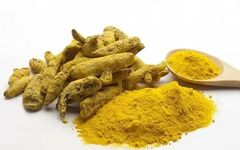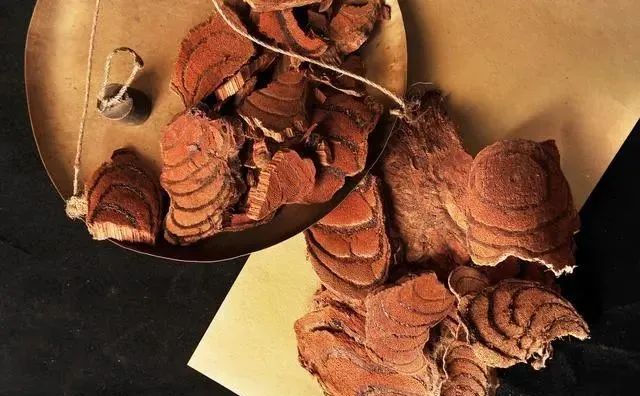
1. Ji Xue Teng (Spatholobus suberectus)
Activates blood and relaxes tendons. Treats lower back and knee pain, numbness and paralysis, and irregular menstruation.
① Gang Mu Shi Yi: “Activates blood, warms the lower back and knees, treats wind paralysis.”
② Ben Cao Zai Xin: “Nourishes the middle and moistens the stomach.”
③ Yin Pian Xin Can: “Removes blood stasis, generates new blood, and smooths the meridians. Treats summer heat stroke and wind-blood obstruction.”
④ Modern Practical Chinese Medicine: “A tonic for blood, suitable for anemic neuropathy, such as limb and lower back pain, numbness, etc. Also used for women’s irregular menstruation and amenorrhea.”
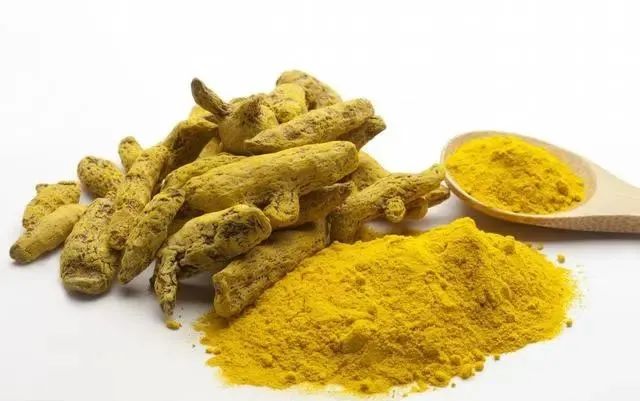
2. Jiang Huang (Curcuma longa)
Breaks blood stasis, moves qi, opens meridians, and alleviates pain. Treats abdominal distension and pain, arm pain, masses, women’s blood stasis and amenorrhea, postpartum abdominal pain, trauma, and carbuncles. Used for qi stagnation and blood stasis-related chest and abdominal pain, dysmenorrhea, and limb pain, often combined with Yuan Hu (Corydalis yanhusuo) and Xiang Fu (Cyperus rotundus).
① Tang Ben Cao: “Mainly treats abdominal masses, dispels qi, breaks blood, eliminates wind-heat, and reduces carbuncles. More potent than Yu Jin (Curcuma aromatica).”
② Ri Hua Zi Ben Cao: “Treats masses and blood clots, carbuncles, regulates menstruation, treats trauma and swelling; alleviates severe wind pain and cold qi, and food stagnation.”
③ Ben Cao Tu Jing: “Treats abdominal distension and postpartum blood stagnation.”
④ Gang Mu: “Treats wind obstruction and arm pain.”
⑤ Ben Cao Zheng: “Eliminates abdominal qi stagnation and cold food accumulation pain.”
⑥ Ben Cao Shu: “Treats qi stagnation, abdominal distension, and pain in the stomach, abdomen, shoulders, back, and arms, as well as hernias.”
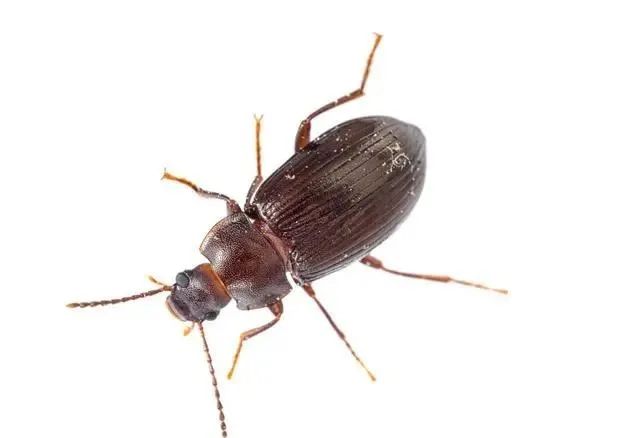
3. Quan Chong (Scorpion)
Activates blood and removes stasis, warms the middle, and regulates qi. Treats labor-related cough, hemoptysis, stroke paralysis, trauma, heart and stomach qi pain, and esophageal reflux.
① Yao Xing Kao: “Swallow several to stop bleeding, treats labor weakness.”
② Gang Mu Shi Yi: “Moves blood, warms the spleen and stomach, harmonizes the five organs, strengthens tendons and bones, dispels dampness and wind, and tonifies yang. Treats insomnia in the elderly, night crying in children, nocturnal enuresis in girls, cold in young women, carbuncles, dry mouth and thirst, eye pain, tinnitus, and colds.”
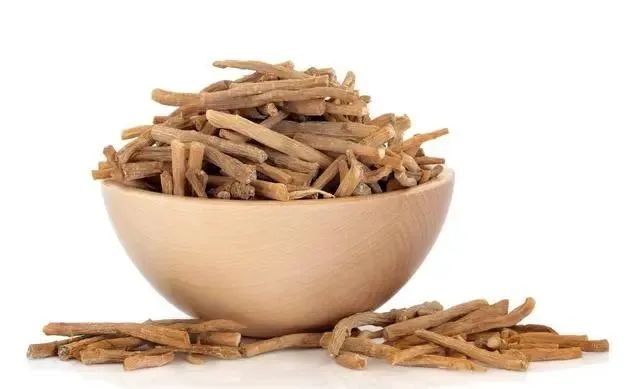
4. Niu Xi (Achyranthes bidentata)
Dispels blood stasis and reduces swelling. Treats dysuria, hematuria, amenorrhea, masses, difficult labor, retained placenta, postpartum abdominal pain, throat obstruction, carbuncles, and trauma. When cooked, it tonifies the liver and kidneys, strengthens tendons and bones. Treats lower back and knee pain, limb spasms, and atrophy.
① Ben Jing: “Mainly treats cold-damp atrophy, limb spasms, knee pain, promotes blood circulation, and treats heat damage and miscarriage.”
② Bei Lu: “Treats weakness after injury, male kidney deficiency, elderly incontinence, tonifies the middle, and fills the marrow, alleviates brain pain and lower back pain, regulates women’s menstruation, and benefits essence and yin qi.”
③ Yao Xing Lun: “Treats impotence, tonifies the kidneys, fills essence, dispels evil blood clots, and assists the twelve meridians.”
④ Ri Hua Zi Ben Cao: “Treats weakness and cold in the lower back and knees, breaks masses, expels pus, alleviates postpartum abdominal pain and blood circulation issues, prevents miscarriage, and tonifies yang.”
⑤ Ben Cao Yan Yi: “Can guide other herbs downward.”
⑥ Dian Nan Ben Cao: “Alleviates joint pain, strengthens tendons, relieves lower back and knee soreness, breaks stasis, prevents miscarriage, disperses lumps, treats scrofula, and alleviates carbuncles, scabies, blood wind, psoriasis, and pus-filled sores.”
⑦ Gang Mu: “Treats chronic malaria, cold and heat, hematuria, pain in the stem, diarrhea, throat obstruction, mouth sores, tooth pain, carbuncles, and ulcers.”
⑧ Ben Cao Zheng: “Mainly treats blood heat and spasms, dry blood stasis, promotes urination, relieves constipation, fills marrow, and benefits essence and activates blood.”
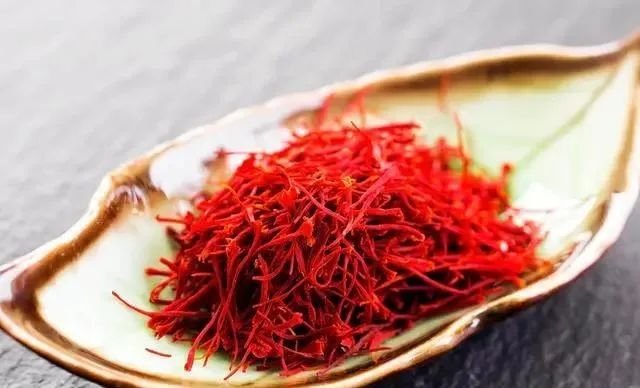
5. Da Huang (Rheum palmatum)
Drains heat toxins, breaks accumulations, and moves blood stasis. Treats heat constipation, delirium, food stagnation, initial dysentery, tenesmus, blood stasis amenorrhea, masses, seasonal epidemics, acute conjunctivitis, hemoptysis, epistaxis, jaundice, edema, and carbuncles. Drains heat, opens the intestines, cools blood, detoxifies, and promotes blood circulation. Used for heat constipation, abdominal pain from accumulation, and dysentery.
① Ben Jing: “Drains blood stasis, blood blockage, cold and heat, breaks masses, expels retained fluids and food, cleanses the intestines, promotes new growth, regulates digestion, and harmonizes the five organs.”
② Bei Lu: “Calms the stomach, drains qi, eliminates phlegm, treats intestinal heat, and relieves abdominal distension in women with cold blood and abdominal pain, and various blood retention issues.”
③ Yao Xing Lun: “Mainly treats cold and heat, promotes digestion, nourishes the five organs, opens women’s menstruation, relieves edema, breaks phlegm, and treats cold and heat accumulations, retained food, and promotes bowel movements.”
④ Ri Hua Zi Ben Cao: “Regulates all qi, harmonizes blood vessels, relieves joints, drains stagnation, and promotes urination, and can be applied to all wounds and carbuncles.”
⑤ Gang Mu: “Mainly treats diarrhea, even if it is white, tenesmus, abdominal pain, hematuria, heat constipation, and various fire sores.”

6. Zang Hong Hua (Carthamus tinctorius)
Activates blood and removes stasis, disperses depression, and opens blockages. Treats emotional distress, chest tightness, hemoptysis, febrile delirium, fright, confusion, women’s amenorrhea, postpartum blood stasis abdominal pain, and trauma swelling.
① Yin Shan Zheng Yao: “Mainly treats emotional distress and qi stagnation, prolonged consumption brings joy to the heart.”
② Pin Hui Jing Yao: “Mainly disperses depression, regulates blood, opens the chest, stimulates appetite, and prolonged use nourishes the lower source and improves complexion, and treats febrile delirium.”
③ Gang Mu: “Activates blood and treats palpitations.”
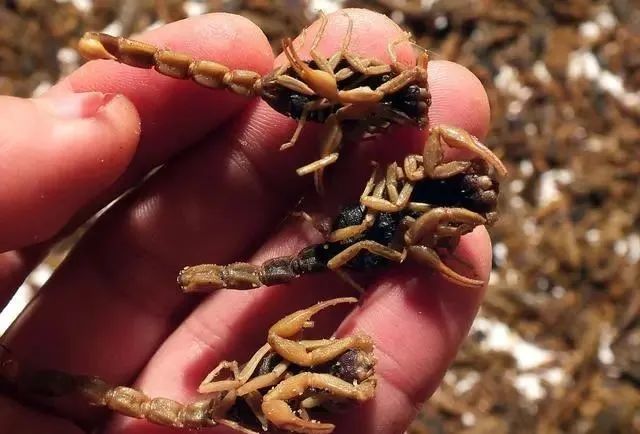
7. Quan Chong (Scorpion)
Dispels wind, stops spasms, opens channels, and detoxifies. Treats convulsions, epilepsy, stroke, hemiplegia, facial droop, migraines, rheumatic pain, tetanus, and lymph node tuberculosis.
① Kai Bao Ben Cao: “Treats various wind rashes, stroke, hemiplegia, facial droop, slurred speech, and spasms of hands and feet.”
② Ben Cao Tu Jing: “Treats convulsions in children.”
③ Ben Cao Hui Bian: “Tetanus should be treated primarily with Quan Chong and Fang Feng (Saposhnikovia divaricata).”
④ Gang Mu: “Treats adult malaria, deafness, hernias, various wind rashes, and women’s leukorrhea.”
⑤ Ben Cao Zheng: “Opens wind phlegm.”
⑥ Yu Qu Yao Jie: “Penetrates tendons and bones, dispels dampness and wind.”
⑦ Shandong Zhong Cao Yao Shou Ce: “Calms wind, opens channels, and stops spasms. Treats thrombotic occlusive vascular inflammation, lymph node tuberculosis, bone and joint tuberculosis, and epidemic mumps.”
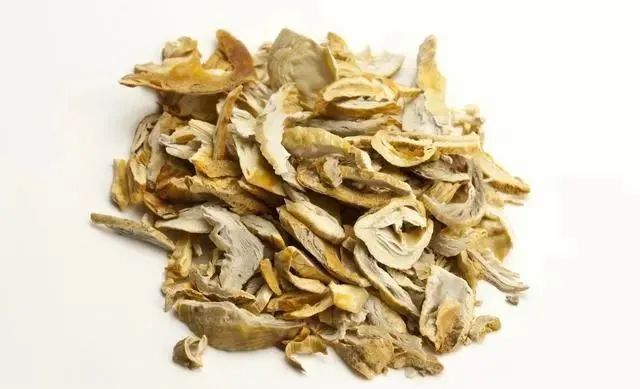
8. Yan Hu Suo (Corydalis yanhusuo)
Activates blood, disperses stasis, regulates qi, and alleviates pain. Treats abdominal and lower back pain, irregular menstruation, masses, excessive bleeding, postpartum dizziness, retained lochia, and trauma.
① Lei Gong Pao Zhi Lun: “Treats heart pain that feels like dying.”
② Ri Hua Zi Ben Cao: “Dispels wind, regulates qi, warms the lower back and knees, breaks masses, alleviates trauma and blood stasis, prevents miscarriage, and treats acute lower back pain.”
③ Kai Bao Ben Cao: “Mainly breaks blood, treats postpartum diseases caused by blood issues. Women’s irregular menstruation, abdominal masses, excessive bleeding, postpartum blood circulation issues, and acute blood surges due to injury or alcohol consumption.”
④ Yi Xue Qi Yuan: “Treats spleen and stomach qi stagnation, mainly for cold-induced diarrhea, abdominal pain, and promotes digestion.”
⑤ Gang Mu: “Activates blood, regulates qi, alleviates pain, and promotes urination.”
Note: Some text and image resources in this article are sourced from the internet. The purpose of reposting this article is to convey more information. If there are any errors in source attribution or infringement of your legal rights, please notify us immediately, and we will delete it promptly and apologize to you.
Previous Highlights:
Chinese medicine for stomach diseases, can Morodandan eliminate stomach diseases? Is it better to eat before or after meals? Xiangsha Yangwei Wan, Xiangsha Liu Jun Wan – similar names, different effects. For poor spleen and stomach, heavy dampness, choose Shenling Baizhu San, Fuzi Lizhong Wan, Guipi Wan. How to choose in TCM?

